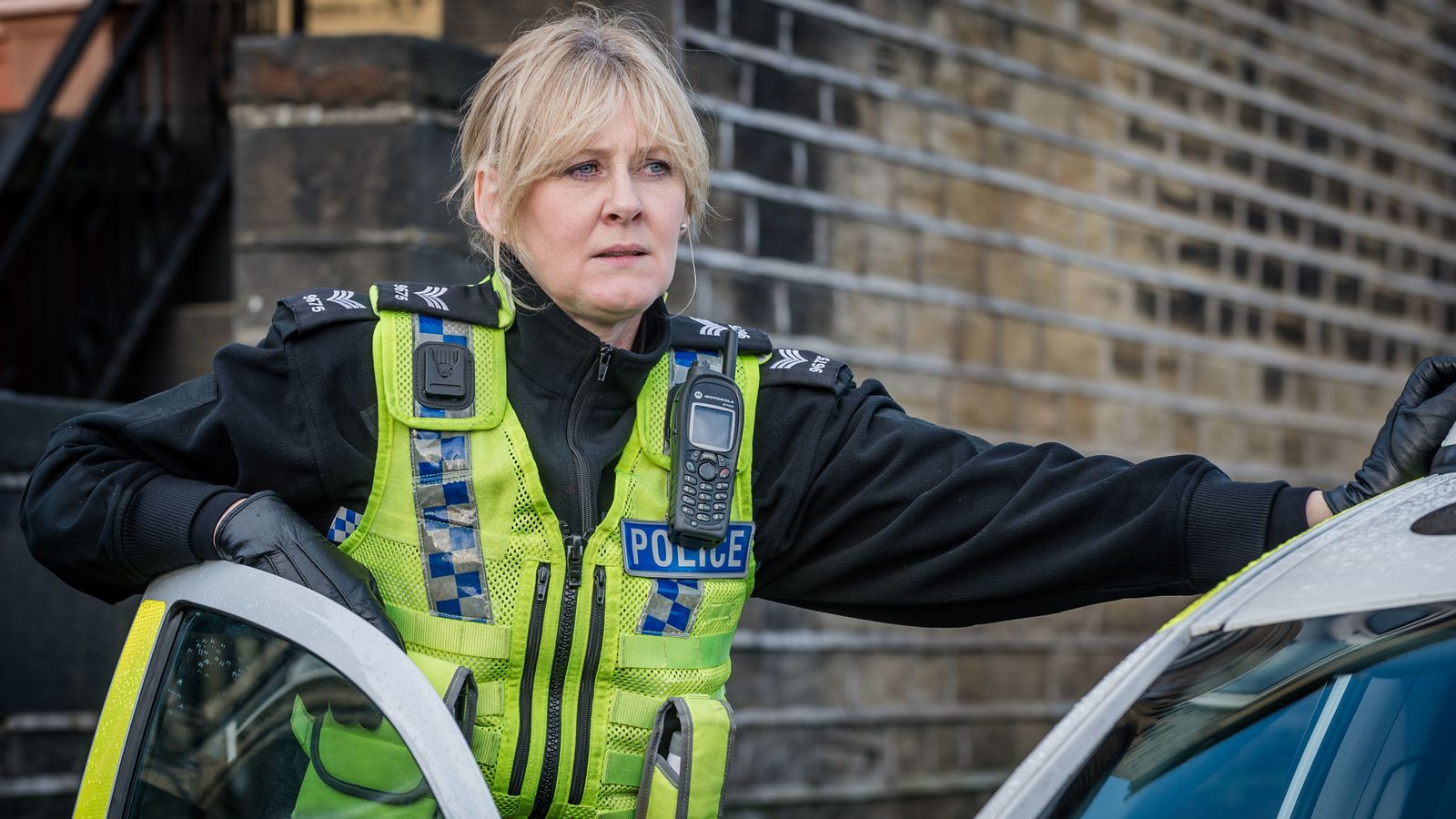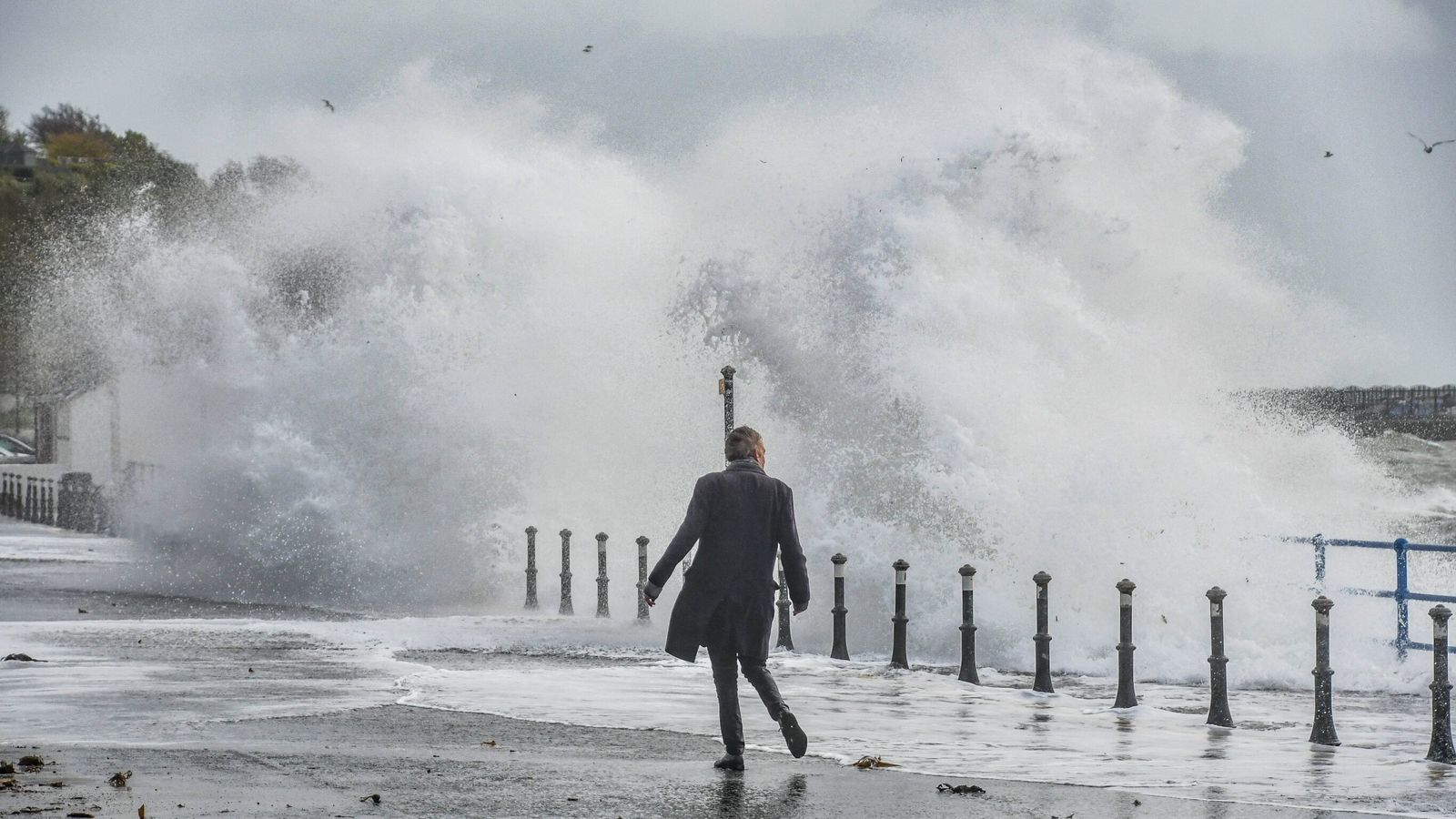Inspector Liz Cokayne-Delves hasn’t sat through a police drama since watching The Bill as a child.
Three episodes of Line Of Duty were all she could watch before the inaccuracies became too much.
“Some of the stuff they do, you just look at it and go, ‘We would never do that. Any of it’.
“There’s not a single person in the series that would still be in the job,” she added.
Happy Valley, then, was a welcome change – so accurate in parts that she described watching it as like a “busman’s holiday”.
As the final episode of the hit show airs, on the Sky News Daily Niall Paterson spoke to Ms Cokayne-Delves along with barrister and former police officer Jeanette Ashmole, who advised the show on scenes including Tommy Lee Royce’s courtroom escape.
Show gives ‘rare insight into day-to-day work of officers’
It’s rare for a police show to portray what the day-to-day work of a police officer really looks like, Ms Cokayne-Delves said. That changed with Sergeant Catherine Cawood, Happy Valley’s flawed, authentic lead.
“You see that side of policing where she knows people, she knows the local area, her knowledge is really good, and I don’t think people who do not work [within the] police really realise there’s an awful lot of that goes on,” Ms Cokayne-Delves said.
Where other TV shows portray outlandish behaviour without career consequences, the BBC’s Happy Valley captures the tension of being held back by professionalism.
Actor Sarah Lancashire has won acclaim for her role as Catherine Cawood, and Ms Cokayne-Delves sees the nuances of the job come through in her acting.
“Sometimes you see in her eyes that kind of ‘I’d cross the line, but I know I can’t because I’m a professional’ and I think that really tells a story in itself because you can see the way she goes through the emotions of, ‘I need to do my job well here but it’s a difficult situation’.”
Click to subscribe to the Sky News Daily wherever you get your podcasts
Show ‘can’t be 100% accurate’
But there are some “far-fetched” parts of the show, Ms Cokayne-Delves said. “There are some bits where I go, that’s a little bit crazy – but it’s not so crazy that everyone in the entire series would lose their jobs in two minutes.”
It’s about striking the balance between accuracy and entertainment, Ms Ashmole said: “There has to be a bit of poetic licence.”
“It can’t obviously be 100% accurate because, you know, a criminal investigation can go on for two years and you can’t be sat [on the] sofa for two years.”
Officers watching TV might be frustrated when their fictional peers get information back in half an hour that would take weeks or months in real life.
Read more from Sky News:
Why people are boycotting Hogwarts Legacy
Harry Styles wins Grammys’ biggest prize – as Beyonce makes history
Netflix says new password sharing rules were posted by accident
Getting details right ‘has real-world consequences’
Ms Ashmole was brought in to advise the scriptwriters on details like barristers’ clothing in Tommy Lee Royce’s court scenes. King’s Counsel wear different clothing to other barristers, and Ms Ashmole travelled to London to pick out the clothes and make sure the show was getting it right.
The show gets advice from current and former police officers too, she said. “I know that they’ve even gone as far down as making sure that the handcuffs are applied, how a police officer would apply them.”
Getting things right – or wrong – on TV can have real-world consequences, she said.
Victims of crime could be watching the series, and “if it doesn’t portray accurately how they will be dealt with, how they can get justice in a court, they can be actually put off from coming forward”.
“It’s just so important to get the basics right,” she added.








